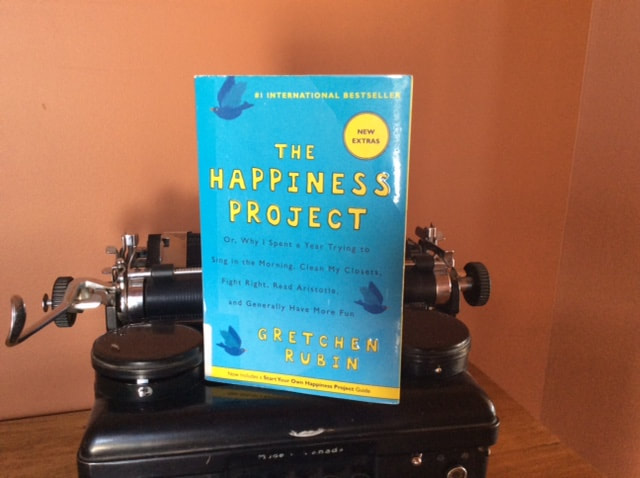|
http://www.jonimacfarlane.com/blog
Are you perfect? Are you free from annoying habits, addictions, or grievances? Do you enjoy your work and have a healthy dose of self-esteem and a good body image? Are your parents, children, siblings and partner equally perfect and happy? Are you living a life that brings you joy, engagement and satisfaction?
No? Well then, step right up - there’s a book (or 50) guaranteed to solve your issue. Go into any well-stocked bookstore and look at the self-help section. It’s generally the largest one there, an industry that generates billions of dollars by tapping into our deepest insecurities, hopes and fears. These books purport to have the answer to help you lose weight, meet your soulmate, sleep better, conquer your dreams, work less, make more money, and on and on. If we just embrace whatever theory is being presented and do the necessary work, we too can have it all. That was certainly the idea behind the curiously compelling book, THE HAPPINESS PROJECT by Gretchen Rubin. In my quest to go outside my usual reading box, self-help was the last genre I had challenged myself to read. Living in New York, Rubin experiences a vague dissatisfaction, a longing for more happiness. But what is the meaning of happiness? She admits it’s a question she can’t answer but decided she’d know it when she felt it. So, determined to increase her happiness, as defined by her own rules, she designed a kind of calendar focusing on a different subject each month: marriage, parenthood, friends, eternity, attitude, work, play, passion, energy, money, and mindfulness. Complete with scoring charts and measurable actions, Rubin assigned an element to each month with resolutions she would record daily with a check mark (good) or an X (bad). Many of the author’s strategies are ones I could see myself trying and even though the premise is a bit hokey, I found myself agreeing. Take January’s resolution to boost energy. Who doesn’t want more vitality to tackle the day to day, but also to engage in social and recreational activities? Resolutions included going to sleep earlier, exercising better, decluttering, tackling a nagging task, and finally, acting more energetic. All worthwhile and doable. But others, not so much. September’s goals were to write a novel in 30 days, read more, and master a new technology. Other months were dedicated to meditation, stimulation of the mind in new ways (she tried hypnosis), examination of her rules for living, keeping a food dairy, and so on. One month there was also a resolution to make three new friends. I was exhausted just reading about it. While some of her choices involved a lot of work (who writes a novel in 30 days?!), many were just decisions to be a nicer person to her children, a more loving wife, a kinder friend. Again, all worthwhile. But... It seems this woman has limitless time and I got the sense she’s not someone who has to worry about mundane daily chores such as cooking and laundry. She acknowledges that many of her strategies were a ton of work but it all contributed to her happiness. Good for her, but not all of us can adhere to such a schedule. I’d be interested to know if she kept it up beyond the year of writing the book. Or were there times when she just felt lazy and watched Netflix? Perhaps my quibbles are only a reflection of my own sloth-like behaviour. Self-improvement is of course a worthy goal and I’m sure there are many many people who have found comfort and solace through these books. Unfortunately, they aren’t my cup of tea. Try as I might, I just can’t get into them. I’m not entirely sure where this aversion stems from but it might have something to do with my mother (don’t all our flaws come from our mothers?) A childhood spent watching her fascination with every new pseudo psychological trend had me running in the other direction. No doubt there’s a book or two on this! My experiment reading outside my comfort zone was super interesting and it was fun to stretch myself. Sports, fantasy and self-help all have something to offer but I can’t help but long for a good story. We all learn in our own way and fiction can be just as good for the soul and the heart as a dose of self-improvement. Literature teaches us how to live. We meet new people, visit places and experience events. We see the joy and suffering of others and how they live. Perhaps we can learn as much wisdom in a good book than in years of self-help books by those who don’t really know us at all. After all, who wants perfection? Happy reading! Joni
0 Comments
Leave a Reply. |
Archives
July 2024
Categories |

 RSS Feed
RSS Feed
